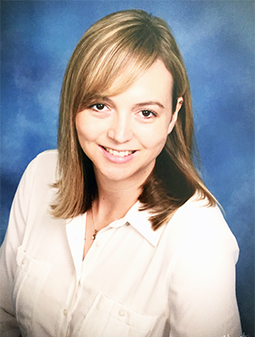Latest News Archive
Please select Category, Year, and then Month to display items
14 June 2024
|
Story Anthony Mthembu
|
Photo Suplied
 Jeremiah Hlahla, a UFS student completing his PhD in Botany at the University of Debrecen as part of an exchange initiative funded by the Erasmus+ Mobility Programme.
Jeremiah Hlahla, a UFS student completing his PhD in Botany at the University of Debrecen as part of an exchange initiative funded by the Erasmus+ Mobility Programme.
As part of an exchange initiative facilitated by the Erasmus+ Mobility Programme, Jeremiah Hlahla, a student at the University of the Free State (UFS), is nearing the completion of his PhD studies at the University of Debrecen in Hungary. Hlahla’s journey, which began in February 2024 and is set to conclude in July 2024, has been a remarkable learning opportunity. “As a first time-traveller to Europe, I have thoroughly enjoyed engaging with people from different countries and cultures,” he said.
The benefits of international collaboration
Hlahla is currently pursuing a PhD in Botany, focusing on plant stress physiology. “My current PhD project investigates the physiological, biochemical and morphological responses of vegetable-type soybean, or edamame, to combined drought and heat stress,’’ he explained. He considers the University of Debrecen the ideal institution to complete his research due to its extensive expertise and resources in similar projects. He noted that his colleagues at Debrecen conduct significant work on plant protection against biotic and abiotic stresses, including salt and drought stress, as well as proteins and amino acids in barley and other legumes.
Given the vast knowledge available on similar projects, Hlahla has found substantial engagement with his work at the University of Debrecen. “Upon arrival, I delivered an introductory lecture presenting my UFS project on the synergistic effects of combined drought and heat stress on the physiology and biochemistry of edamame. It was an engaging session as everyone could relate to my work and asked many questions,’’ he said.
Insights gained from the exchange
Hlahla has also gained valuable lessons that will assist him in his research career, including biotechnology and physiology tools. “I learned how to prepare samples and use high-performance liquid chromatography (HPLC) and reversed-phase ultra-high-performance liquid chromatography (UHPLC) to quantify proteins and amino acids,’’ he said. These techniques are beneficial not only for his current work but will also support future soybean research.
As his experience at the University of Debrecen nears its end, Hlahla reflects on the collaborations and friendships he has formed, which stand out as a significant highlight.
Seasoned international pianist appointed at the OSM
2016-02-05

Dr Grethe Nöthling |
The Odeion School of Music is delighted to welcome Dr Grethe Nöthling as a new member of its dynamic performance faculty.
Dr Nöthling has been appointed as principal piano lecturer. She has won several national music competitions, and is the recipient of numerous awards and bursaries, including the University of South Africa overseas scholarship for teachers in 2003.
Musician and pedagogue par excellence
From 1989 to 2005, Dr Nöthling performed as soloist with all major South African Symphony Orchestras. She obtained a Bachelor of Music Degree (magna summa cum laude), specialising in Performance from the University of Pretoria under the tutelage of Professors Ella Fourie and Joseph Stanford.
She furthered her studies in the United States of America at the Cleveland Institute of Music where she received a Master’s of Music Degree in 2008 under the guidance of Daniel Shapiro and Paul Schenly.
Dr Nöthling obtained a Doctorate of Musical Arts Degree (2014) from the University of Iowa (UI) in the USA under Professor Uriel Tsachor. During her studies at the U of I, she was awarded a teaching assistantship, and performed with the university’s New Music Ensemble. During a ten-year residency in the USA, she has performed extensively as both soloist and chamber musician.
Inspiration for aspiring musicians
“It is my hope to be an inspiration for young and upcoming musicians both as pedagogue and performing artist. In order to consider the unique gifts and challenges of every individual student, I am of the opinion that is imperative to be very flexible and adjustable from a methodological and musical perspective,” said Dr Nöthling.